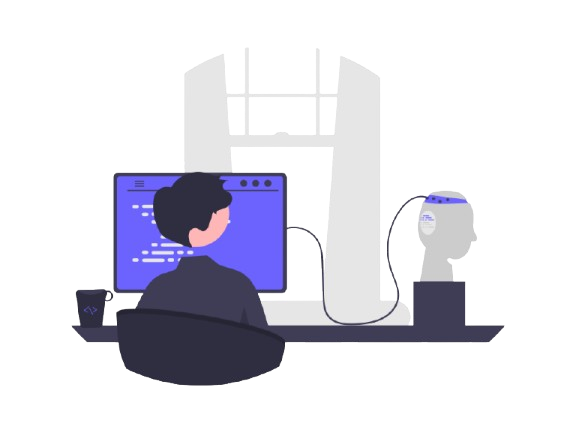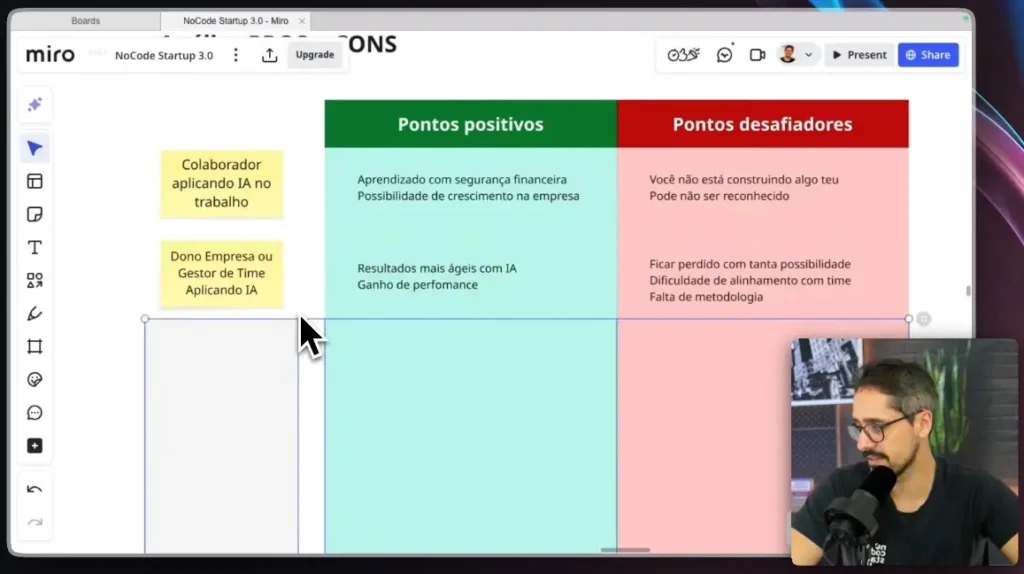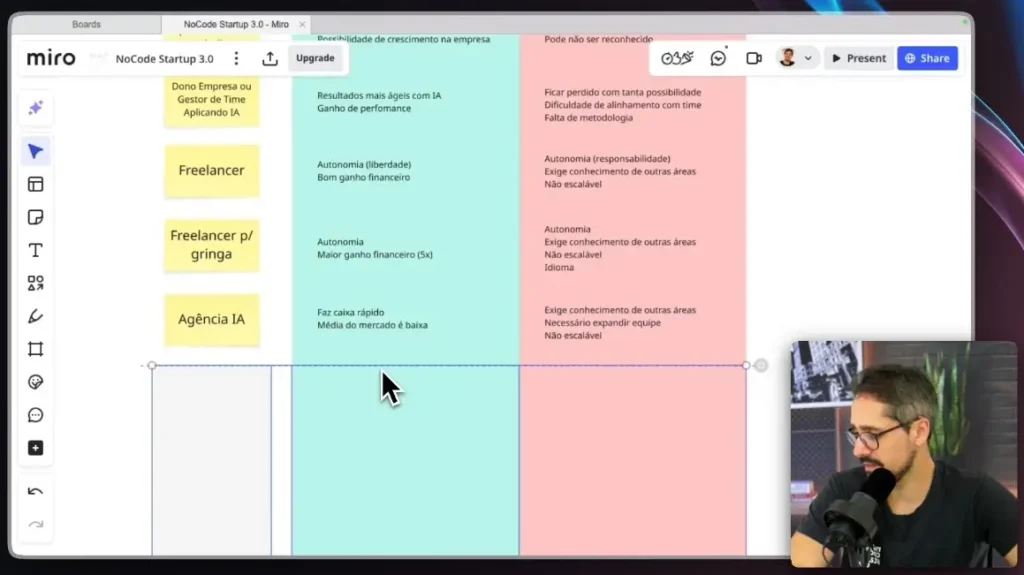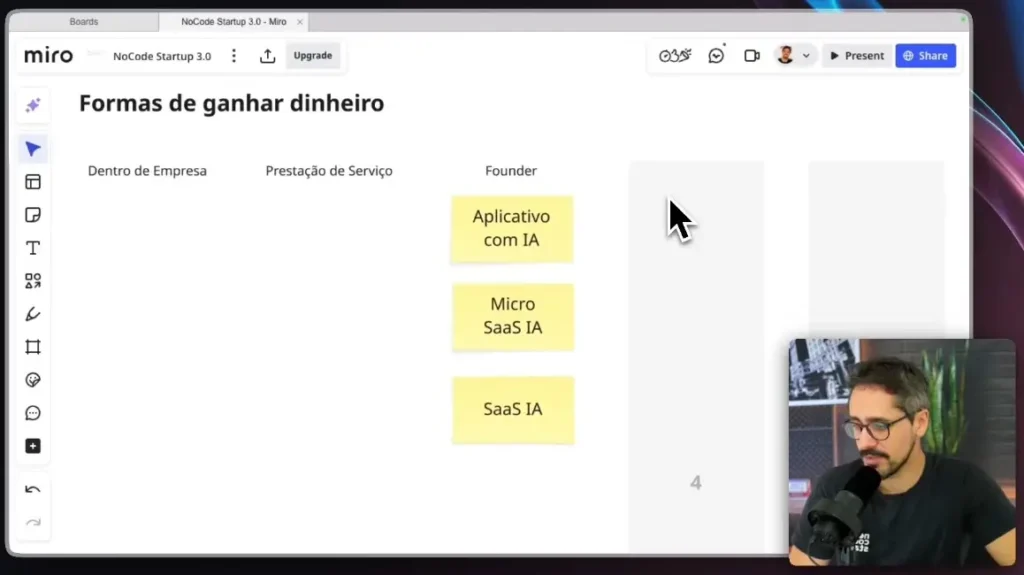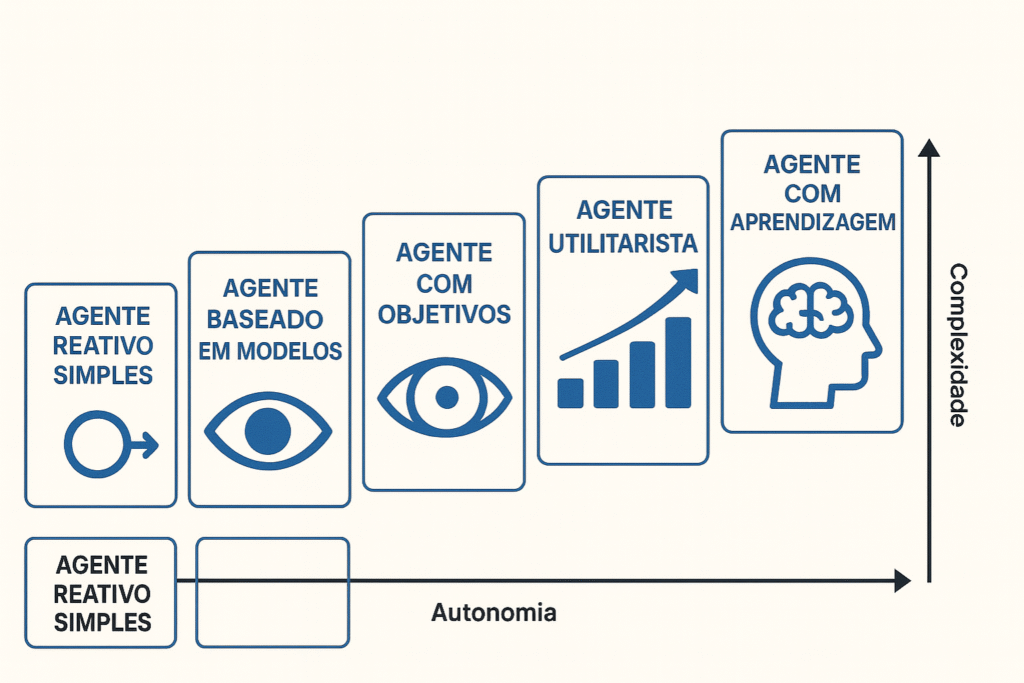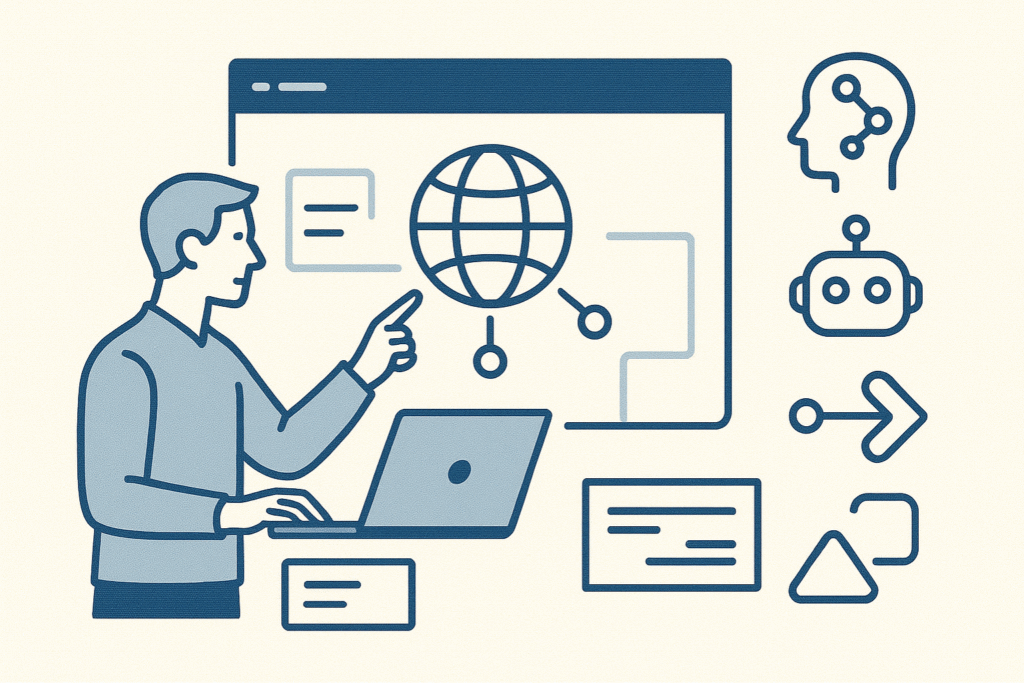What are AI automations?
AI automation uses artificial intelligence to perform repetitive or complex tasks autonomously. These technologies analyze data, make decisions, and learn over time. This helps companies increase productivity and reduce operational errors.
For example, the Make Integromat is a powerful tool for creating automatic flows, connecting different platforms and optimizing processes. In addition, this solution allows you to integrate services such as email, cloud storage and management systems, facilitating the automation of repetitive tasks.
Benefits of AI Automations

1. Greater productivity
With AI automation, time-consuming tasks can be completed in minutes. This allows teams to focus on more strategic and creative activities, increasing overall efficiency. In addition, these tools reduce human error and ensure greater accuracy in processes, contributing to more consistent and satisfactory results in the workplace.
2. Error reduction
AI minimizes human error, ensuring greater accuracy. Additionally, tools such as Bubble help create custom solutions without the need for code, allowing developers and entrepreneurs to implement their ideas quickly and efficiently, without relying on advanced technical skills.
3. Better decision making
AI analyzes large volumes of data, offering accurate insights. Consequently, this helps companies make more informed and efficient decisions, optimizing strategies, reducing operational costs and identifying new market opportunities in an agile and assertive manner.
4. Time saving
In addition to increasing accuracy and efficiency, AI automations significantly reduce the time needed to complete operational tasks. As a result, they provide agility in processes, improve resource allocation, and allow teams to focus on more innovative and strategic projects, driving organizational results.
5. Scalability
By adopting AI automation, it is possible to scale processes without the need to increase human resources. In this way, companies ensure sustainable growth, reduce operational costs and increase efficiency, while maintaining the quality of the services and products offered.
How to apply AI automations at work
Connecting different tools is essential to achieve effective automation in work. For example, Xano Course teaches how to integrate databases with artificial intelligence systems, allowing a fluid connection between different systems and increasing process efficiency.
Tools like Make Integromat enable the creation of chatbots that answer frequently asked customer questions quickly and accurately. This automation improves customer service, saves time, and reduces the need for human intervention.
Artificial intelligence can also be used to predict demand and manage inventory more efficiently. This application reduces waste and ensures that the right products are available at the right time, optimizing logistics.
Additionally, AI tools allow you to create personalized marketing campaigns that are tailored to your customers’ behavior and preferences. This approach increases the effectiveness of your actions and improves the results of your marketing strategies.
Examples of AI automations in the market
- Customer service: chatbots answer questions in real time, reducing costs and increasing customer satisfaction.
- Data analysis: AI tools identify patterns and trends in large volumes of data, assisting marketing, sales and audience segmentation strategies.
- Social media management: Post automation and monitoring save time and increase campaign reach.
- Financial forecasts: predictive models help identify risks and opportunities, optimizing resource management.
- Health diagnostics: AI improves accuracy when analyzing medical data, aiding diagnoses.
- Personalized education: intelligent systems adapt content to the needs of each student, while platforms like Nocode enable educational innovations.
- Environmental management: AI monitors ecosystems, predicts disasters and optimizes resources, contributing to sustainable practices.
- Technical support: solutions quickly identify and correct problems, increasing operational efficiency.
- Information security: AI detects cyber threats and protects systems in real time.
- Legal assistance: Law firms use AI to organize documents and speed up legal analysis.
How to choose the best tool for task automation

- Specific features: choose tools that meet your needs. For example, if you need integrations, opt for solutions like Free bubble course.
- Cost-benefit: Evaluate the price in relation to the features offered. In addition, many platforms offer free versions for testing.
- Support and Community: tools with active communities, such as Bubble Community, offer valuable support for beginners.
- Ease of use: consider the learning curve of the tools. For example, some, such as flutterflow course, offer resources and tutorials that make implementation simpler.
- Integration with existing systems: Make sure the tool can be easily integrated into your current work environment to avoid implementation complications.
Future Trends in AI Automations
The advancement of AI automation promises even more innovative solutions. Features such as machine learning and collaborative automation are under development. In addition, the integration of AI and mobile devices will allow users to automate processes directly from their smartphones. Ultimately, these innovations are expected to bring even more agility and efficiency to business and personal processes.
Generative AI
Tools that use generative AI, such as language models, are evolving rapidly and offering new capabilities for content creation and personalized solutions.
Predictive automation
AI automations tend to become more predictive, anticipating problems and proposing solutions before they even occur. This way, companies will be able to act proactively, minimizing risks and improving process efficiency.
Sustainability
Integrating AI with sustainable technologies will help companies manage natural resources more efficiently, contributing to environmentally friendly practices. In addition, this combination will allow optimizing energy use and reducing waste, promoting a more sustainable future.
Expansion for small businesses
In the future, AI automation is expected to be accessible to small businesses and individual entrepreneurs as well, allowing them to enjoy the same benefits as large organizations. This will make it possible to increase competitiveness and efficiency, even with more limited resources.
Integration with augmented reality
The combination of AI and augmented reality will create even more immersive experiences, with applications in training, marketing and entertainment. This convergence will bring new horizons to several industries.
AI in recruitment
The use of AI automation in recruitment is transforming the way companies find talent. With advanced algorithms, it is possible to analyze resumes, evaluate candidates and reduce human biases in the selection process.
Continuous improvement
Over time, AI automation tools are becoming more accessible, effective, and aligned to the specific needs of various industries. This continued progress points to a future full of opportunities for businesses of all sizes.
AI automation is transforming several areas, increasing productivity and optimizing processes. Want to know more? Visit the website NoCode StartUp and check out all the available training courses!
